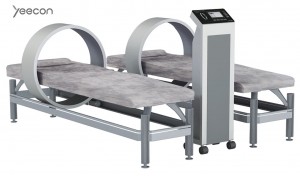With the increasing aging population, osteoporosis has become a significant health concern. Osteoporosis is a condition characterized by reduced bone density and thinning, leading to an increased risk of fractures, especially among middle-aged and elderly individuals. However, by increasing awareness of bone health, taking preventive measures, and seeking appropriate treatment, we can reduce the risk of osteoporosis and maintain a healthy skeletal system.
- What is Osteoporosis?
Osteoporosis is a skeletal disorder that makes bones fragile and prone to fractures. Normally, bone tissue undergoes constant remodeling and renewal. However, when the rate of new bone formation cannot keep up with the rate of bone loss, bone density decreases, resulting in osteoporosis. This makes bones susceptible to fractures, particularly in the hips, spine, and wrists.
2.Risk Factors for Osteoporosis:
- Age: The risk of osteoporosis increases with age.
- Gender: Women are more prone to osteoporosis, especially after menopause.
- Genetics: Individuals with a family history of osteoporosis are more susceptible.
- Unhealthy lifestyle habits: Lack of exercise, poor dietary habits (low calcium, low vitamin D), smoking, and excessive alcohol consumption increase the risk of developing osteoporosis.
- How to Prevent Osteoporosis?
Prevention is key in managing osteoporosis. Here are some preventive measures:
- Balanced nutrition: Ensure an adequate intake of calcium and vitamin D. Foods such as dairy products, leafy green vegetables, and fish are rich in these nutrients.
- Exercise: Engage in moderate physical activities such as walking, jumping rope, weightlifting, and aerobic exercises to strengthen bones and muscles.
- Quit smoking and limit alcohol intake: Smoking and excessive alcohol consumption increase the risk of osteoporosis, so it’s important to avoid or reduce these unhealthy habits.
- Regular bones density screenings: Certain age groups should undergo regular bone density tests to detect signs of osteoporosis in a timely manner.
- The Importance of Family Support in Managing Osteoporosis:
Family support plays a crucial role in the prevention and treatment of osteoporosis:
- Nutritional support: Family members can provide healthy dietary choices to ensure the patient receives sufficient calcium and vitamin D. They can encourage the consumption of dairy products, legumes, fish, and leafy green vegetables.
- Promoting exercise: Family members can participate in physical activities together, such as walking, cycling, or joining fitness classes. This not only helps the patient strengthen bones and muscles but also enhances family bonding.
- Providing support and encouragement: Osteoporosis can have a negative impact on the patient’s emotions and mental health. Family members can offer emotional support and encouragement to help the patient develop a positive attitude, face challenges, and adhere to treatment.
- Managing medical appointments: Family members can assist the patient in tracking and managing medical appointments, ensuring timely bone density tests and other necessary medical evaluations.
Seeking medical attention promptly is crucial once you notice any discomfort or symptoms related to osteoporosis. In summary, timely medical attention and regular medical examinations are essential for preventing and early detection of osteoporosis. They can help us better protect our bone health and take necessary measures promptly.

Osteoporosis Indications: Alternating Magnetic Field Therapy Apparatus
Post time: Aug-18-2023






